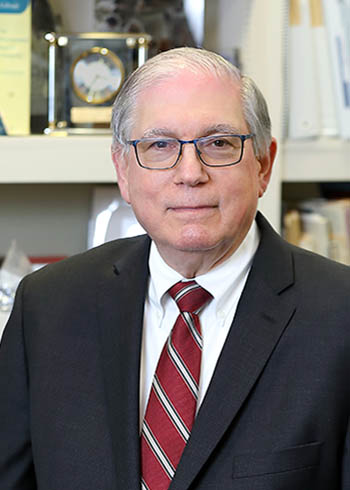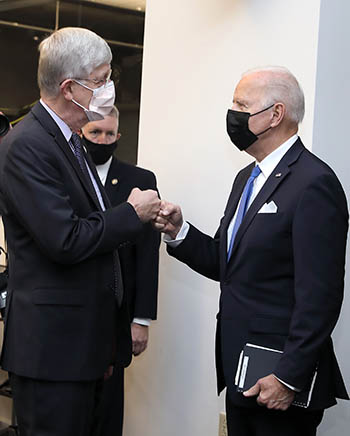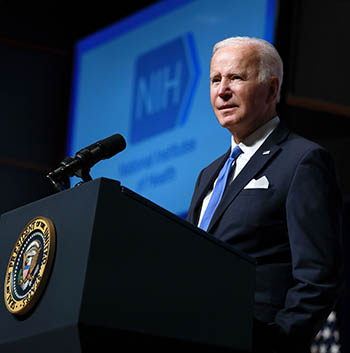News Briefs
Lawrence Tabak Named Acting Director of NIH
Will Continue to Carry Out NIH’s Important Initiatives

CREDIT: NIH
Lawrence Tabak
On December 20, 2021, Lawrence A. Tabak, the principal deputy director of the National Institutes of Health (NIH), began serving as the acting director of NIH. The previous NIH director, Francis S. Collins, who stepped down from that position on December 19, was the longest-serving, presidentially appointed NIH director, having served three U.S. presidents over more than 12 years. Collins will continue to lead his research laboratory at the National Human Genome Research Institute.
Tabak had served as the NIH principal deputy director and the deputy ethics counselor since August 2010. He previously served as the NIH acting principal deputy director in 2009, and prior to that as director of the National Institute of Dental and Craniofacial Research (2000–2010).
Before joining NIH, Tabak was the senior associate dean for research and professor of dentistry and biochemistry and biophysics in the School of Medicine and Dentistry at the University of Rochester (Rochester, New York). Tabak’s major research focus has been on the structure, biosynthesis, and function of glycoproteins. He continues work in this area, maintaining an active research laboratory within the NIH intramural program in addition to his administrative duties.
A native of Brooklyn, New York, Tabak received his undergraduate degree from City College of the City University of New York (New York), his D.D.S. from Columbia University (New York), and both a Ph.D. and certificate of proficiency in endodontics from the University of Buffalo (Buffalo, New York). A former NIH MERIT recipient, Tabak has received several honors and awards for his work including being an elected member the National Academy of Medicine (formerly the Institute of Medicine) of the National Academies.
“I am honored to assume the role of the acting director of the National Institutes of Health and lead the agency during this time of transition,” Tabak wrote in an email message to NIH staff on December 20, 2021. “Having served at Dr. Collins’ side as the principal deputy director since August 2010, I have been intimately involved in the science, policies, and operations of the agency and will continue to carry out the important initiatives that Dr. Collins and I have built and fostered together over the past 12 years…. Dr. Collins’ singular focus has always been finding the best ways that NIH research can improve health, end suffering, and provide hope for all people. As acting director of NIH, I will try to sustain that legacy.”
Other changes in the Office of the NIH Director: Tara A. Schwetz, who has been the NIH associate deputy director and alternate deputy ethics counselor at NIH since 2019 and recently did a detail to the White House Office of Science and Technology Policy as the assistant director for biomedical science initiatives, will serve as acting NIH principal deputy director. Courtney F. Aklin, who was the senior advisor in the immediate Office of the Director, will resume her position as acting NIH associate deputy director. John Burklow, formerly the NIH associate director for communications and public liaison, will continue as the acting chief of staff.
To watch a farewell tribute to Francis Collins, held on December 16, 2021, go to https://www.nih.gov/farewell-dr-francis-collins.
President Biden’s New Plans for Dealing with COVID-19


CREDIT: CHIA-CHI “CHARLIE” CHANG
President Joe Biden visited NIH on December 2, 2021, to discuss the nation’s winter strategy against the COVID-19 pandemic. (Top) NIH Director Francis Collins and the president greet one another with a fist bump. (Bottom) The president announces his plan—developed with the advice of top physicians, scientists, and public health experts—for dealing with COVID-19 and its variants: expanding the nation’s booster campaign; launching new family vaccination clinics; expanding free, at-home COVID-19 testing that’s covered by health insurance; increasing the number of surge response teams to help communities with rising caseloads and overwhelmed hospitals; speeding up efforts to vaccinate the rest of the world; and more.
Read more in the NIH Record.
This page was last updated on Friday, January 28, 2022
